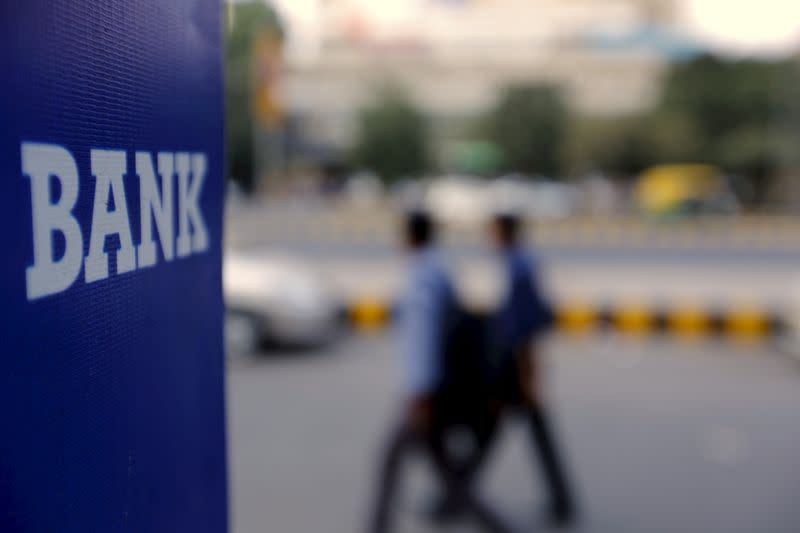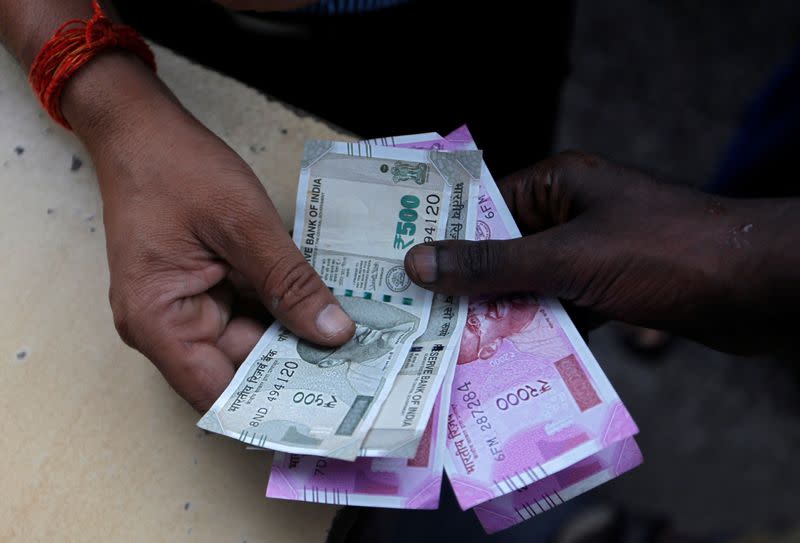Indians switch to bank deposits as concerns grow over debt funds
By Nupur Anand and Abhirup Roy
MUMBAI (Reuters) - Rattled by the shock closure of some high-profile domestic funds investing in high-yielding debt, Indian investors are quickly moving their cash into the safety of bank deposits.
Bankers told Reuters they have seen heavy inflows into their traditional deposit schemes after one of India's most prominent mutual fund houses in fixed income, Franklin Templeton Mutual Fund, said last week it was shutting down six credit funds.
Templeton wound up the funds due to a lack of liquidity in markets battered by the coronavirus pandemic. Their combined assets of about 280 billion rupees (almost $4 billion) had large exposures to higher-yielding, lower-rated credit securities.
As spooked investors called for a government intervention and debt mutual funds saw record withdrawals, traditional bank deposits have gained.
"Bank deposits have picked up, as a lot of money that is getting redeemed from mutual funds is also coming to banks now," said Sumant Kathpalia, CEO of IndusInd Bank.
Flush with cash, banks have cut deposit rates. The weighted-average deposit rate of commercial banks is down 45 basis points since February 2019. Still, bank deposits grew by 9.45% year-on-year in two weeks ended April 10 compared with a 7.93% rise two weeks prior.
While up-to-date figures on the flows into deposits after the Templeton news will only be known next month, growth is expected to remain in low double digits in the coming months, said an executive director at a state-run bank.
Mutual funds investing in debt saw outflows of close to 1.95 trillion rupees ($25.5 billion) last month.
Retail investors have for long been flocking to tax-friendly debt mutual fund schemes on the promise that they are as safe as bank deposits and with little concern for potential credit risks in case of a default.
In 2017, credit opportunity funds, which invest mostly in higher-yielding bonds with ratings below the top AAA investment grade, saw record inflows.
That changed a year later as a string of defaults at a major infrastructure lender sucked liquidity out of the corporate bond market. An economic slowdown in 2019 triggered more debt defaults and exposed fault lines in the credit space.
The tipping point came last month as many investors redeemed their funds to preserve cash during a nationwide lockdown to contain the spread of the coronavirus, and funds such as Templeton took a hit.
Prateek Pant, co-founder of Sanctum Wealth Management, said he was facing a barrage of calls from investors worried about the safety of their debt investments.
"Overall, debt funds as a category is fine. But if you're really losing your sleep because of that, then go ahead and put that money in a bank right now," Pant said.
(Reporting by Nupur Anand and Abhirup Roy; Editing by Simon Cameron-Moore)

 Yahoo Finance
Yahoo Finance 

